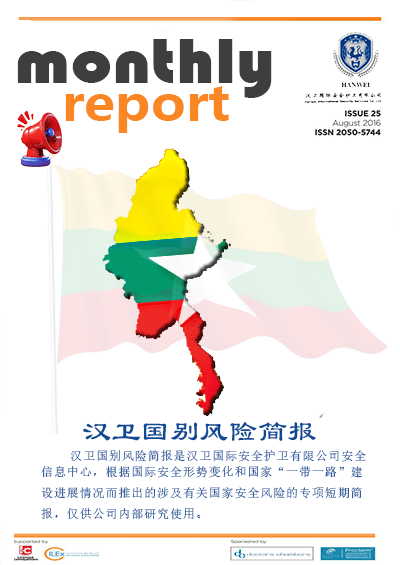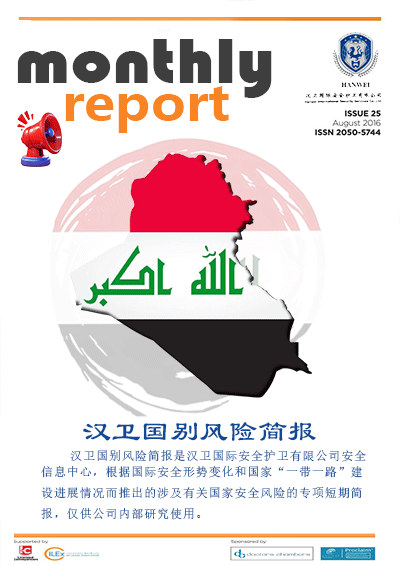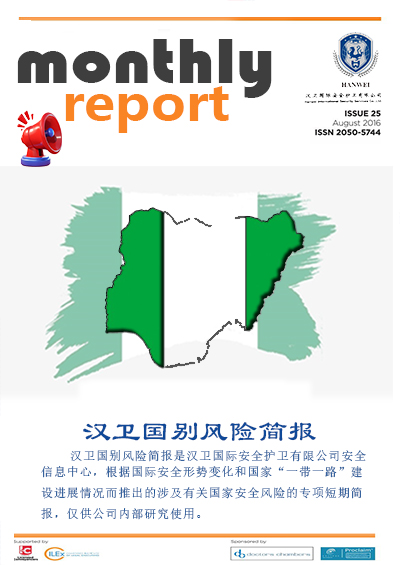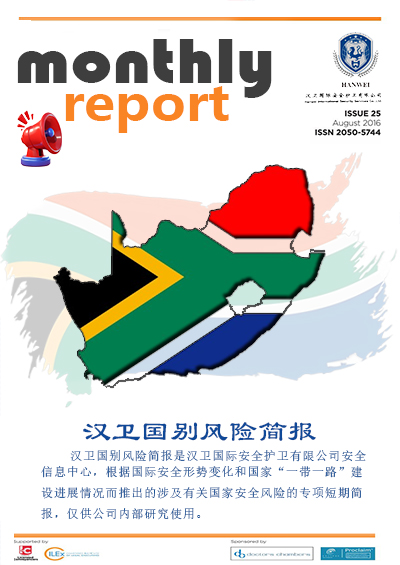South Africa Security Situation Overview (October)
Researcher No. 006
Based on monitoring reports from Hanwei International's security officers stationed in South Africa and relevant media coverage, Hanwei International's analysis indicates that South Africa faces ongoing disputes and persistent challenges in October. Politically and economically, the fate of the Black Economic Empowerment (BEE) policy has plunged the country's coalition government into major divisions once again; government debt continues to soar while cash reserves of non-financial enterprises hit a record high, further squeezing the living space of underprivileged groups; student protests and union threats have seen demonstration activities escalate into "targeted pressure campaigns". In terms of social security risks, incidents such as shootings, robberies, and kidnappings remain highly frequent, involving severe violent acts. In other aspects, large-scale anti-corruption efforts in South Africa have curbed the spread of organized crime.
I. Politics and Economy
(1) Dispute Over BEE Abolition Intensifies Divisions in South Africa’s Coalition GovernmentOn October 21, 2025, the Democratic Alliance (DA)—one of the members of South Africa’s ruling coalition—officially proposed the abolition of the current Black Economic Empowerment Act (BEE) and the introduction of a National Economic Inclusion Act. The proposal advocates for the complete elimination of race-based preference clauses in public procurement, replacing them with a new evaluation system centered on the reasonableness of quotations and service quality. However, the African National Congress (ANC)—the dominant force in the ruling coalition—firmly opposes the proposal, emphasizing that BEE is a key pillar for narrowing economic gaps between races and promoting the redistribution of social resources.
The DA’s proposal has sparked widespread public debate. Multiple polls show that most South African citizens support the abolition of BEE and the removal of racial factors in government procurement; the International Monetary Fund (IMF) even estimates that BEE has increased procurement costs by approximately 20%. Nevertheless, there are significant divides in opinion within the Black community: 44% of Black respondents oppose abolishing the act, only 32% express support, and more than half of Black respondents acknowledge BEE’s role in wealth redistribution—while voicing dissatisfaction with its actual impact on government procurement and personnel appointments. This directly reflects that underprivileged groups are closely monitoring the fate of this policy, which may trigger confrontational conflicts within the Black community or even across society. Such contradictions are particularly likely to escalate into street violence in regions like Gauteng Province, where governance is chaotic and public services are inadequate.
(2) South Africa’s Economy Trapped in "Dual Contraction", Security Risks Continue to Escalate
On October 14, a report from the South African Reserve Bank revealed that South Africa faces severe "debt trap" risks, with its fiscal situation deteriorating sharply. Since achieving a budget surplus in the 2008/09 fiscal year, government debt has continued to soar: its share of GDP has jumped from 24% to 76% in the 2025 fiscal year, and debt interest payments have risen from 54.3 billion rand to 385.6 billion rand, with an average annual growth rate of 13.1%. If this trend continues, debt interest payments will exceed education expenditure for the first time in the current fiscal year—seriously squeezing fiscal spending on key areas such as education, healthcare, and infrastructure construction, increasing the survival pressure on underprivileged groups, and pushing up security risks.
Meanwhile, the report shows that as of the end of July this year, cash reserves of South Africa’s non-financial enterprises had climbed to 1.8 trillion rand, reaching a historical peak. This data reflects enterprises’ strong cautious attitude toward the economic environment: amid multiple pressures such as weak growth and policy uncertainty, enterprises have chosen to delay investment plans and hoard cash for emergencies. Insufficient corporate investment will further lead to a shortage of jobs, pushing the already out-of-control unemployment rate (exceeding 33%) even higher, and bringing social security risks to the brink of collapse.
(3) South Africa’s Protests Escalate into "Targeted Pressure Campaigns"
On October 6, student organizations at the University of Fort Hare in the Eastern Cape Province staged protests, demanding the resignation of the university president on the grounds of mismanagement. Although the university applied to the Bhisho Division of the Eastern Cape High Court for an urgent interdict to ban illegal gatherings on the 7th, the protests escalated drastically on the 8th: petrol bombs were thrown at the university’s main administration building, student affairs building, and a community clinic originally scheduled to open this month. Preliminary estimates put the damage at 250 million to 500 million rand, with no casualties reported. The university stated that the act was a well-organized and criminal act of severe violence, and the police have arrested 7 students on suspicion of public violence.
On the same day, South Africa’s Municipal Workers’ Union issued a warning that if the government still fails to resolve the salary dispute for municipal employees, it will disrupt the smooth holding of the G20 Summit in Johannesburg. It is reported that the union is coordinating with the Congress of South African Trade Unions (Cosatu) and other regions to plan escalated protests during the G20 Summit, with demands focusing on back salary payments and the reinstatement of dismissed workers.
II. Social Security Risks
On October 1, data from Statistics South Africa showed that South Africa’s job market continued to deteriorate in the second quarter of 2025: 80,000 jobs were lost quarter-on-quarter, and 229,000 jobs were lost year-on-year—marking three consecutive quarters of decline. By the end of June this year, the total number of employed people in the country had dropped to 10.509 million.
(1) Shooting IncidentsIn
October, shooting incidents in Cape Town became a regular occurrence, with frequent shootings in multiple communities covering both daytime and late-night hours. According to data from the "Crime-Fighting Action Organization", between October 16 and 26 alone, 225 violent incidents occurred in Cape Town, including 168 shootings—accounting for 74.7% of the total.
- Frequent Sporadic Shootings: On October 9, two 17-year-old teenagers in Hanover Park, Cape Town, exchanged gunfire over a gang dispute; a stray bullet injured a 4-year-old boy. On the 24th, two gunmen opened fire at close range on a white Audi parked outside a gas station in Surrey Estate, killing 27-year-old Levin Davids on the spot and injuring his husband and one family member. On the 25th, a 19-year-old teenager in the Lavender Hill community was shot and killed by masked gunmen at his doorstep, hit by 30 bullets.
- Major Vicious Shootings:
On October 14, a vicious incident occurred in the late night at Holomisa Square in the Imizamo Yethu community, Hout Bay: three men were shot dead inside a silver Hyundai sedan. On the 17th, seven men aged 20 to 30 were shot dead in an informal settlement in Philippi East, Cape Town. On the 26th, a shooting in the early morning in the Grassy Park area left 1 dead and 4 injured; a shooting in the Lotus River area also resulted in 1 death and 4 injuries.
(2) Robbery IncidentsIn
October, robberies in South Africa escalated in violence, involving multiple violent methods such as shooting, stabbing, and stone-throwing—posing a severe threat to the lives and property of the public.
On the evening of October 10, on the N1 Highway in the Waterberg District of Limpopo Province, an intercountry bus traveling from Johannesburg to Zimbabwe was violently robbed at gunpoint by two male passengers on board. When some passengers attempted to stop the robbers, the latter fired multiple shots inside the bus, killing one man and one woman; most passengers had their cash, mobile phones, and other valuables stolen.
On the 13th, a 26-year-old police officer was attacked during an attempted carjacking while off-duty: the robbers stabbed him multiple times and hit him with stones, leading to his death from severe injuries. Off-campus dormitories of Nelson Mandela University were robbed by a man with a knife, resulting in the on-the-spot death of a 23-year-old woman (stabbed multiple times) and injuries to a 20-year-old person, who was taken to hospital for treatment.
(3) Kidnapping Incidents
- Gauteng Province: On October 12, a 42-year-old entrepreneur in Pretoria and his wife were "stopped by police" while driving. Four suspects, posing as senior investigators, dragged the man out of the car and abducted him. Later, patrol police stopped and searched the fake police car, seizing assault rifles, forged police badges, and other equipment, and successfully rescued the victim in just 20 minutes. On the afternoon of the 24th, South African police, in collaboration with multiple departments, surrounded a criminal gang in the Parktown area of Johannesburg—suspected of being involved in multiple serial kidnappings, including the abduction of a Chinese citizen in June this year. A fierce gunfight broke out between the two sides, resulting in the on-the-spot death of three suspects.
Both incidents occurred in Gauteng Province, which accounts for 52.8% of all kidnappings in South Africa—representing a 16% year-on-year increase—making it a veritable "kidnapping hotspot".
III. Other Aspects
(1) Large-Scale Anti-Corruption Investigations in South Africa
On October 1, the South African Police Service’s Commercial Crime Unit focused on a major tender fraud case involving approximately 1.6 billion rand, seizing and searching 26 key locations including the private residences of municipal officials and the offices of involved enterprises. The case is closely linked to kickbacks in the contract allocation process of the City of Cape Town’s Metropolitan Transport Department.
On the 3rd, Fikile Mbalula, Secretary-General of the ANC, explicitly admitted at a press conference in Johannesburg that the party had been infiltrated by criminal groups—with party members suspected of being involved in a 2 billion rand fund embezzlement case at the Tembisa Hospital. On the 13th, Fikile Mbalula, South Africa’s Minister of Police (note: corrected for consistency; original text mentions "Firoz Kachalia", likely a typo), further warned at a forum hosted by the Kgalema Motlanthe Foundation that organized crime groups have infiltrated the government procurement system, seriously threatening South Africa’s national security and democratic system. He stated that if anti-corruption efforts are not intensified, South Africa risks following the path of Colombia and Ecuador.
Recommendations from Hanwei International Chinese-funded enterprises and individuals in South Africa should focus on the following precautions:
1. Closely Monitor Developments to Avoid Political and Economic
Security RisksClosely follow local political and economic news, and avoid areas prone to protests—such as government institutions and major transportation hubs. When traveling daily, stay away from large crowds to prevent involvement in unexpected conflicts. Enterprises should proactively identify nodes linked to government departments, educational institutions, and unions, establish real-time channels for collecting protest information, and reasonably adjust staff attendance and business handling hours. If an enterprise becomes the target of protests, it should activate emergency response immediately, close on-site office areas, and maintain communication with protesters through official channels in a timely manner to avoid escalating conflicts.
2. Strengthen Security Precautions to Counter the Threat of Prevalent Violent Crimes
Recently, South Africa’s overall social security environment has been harsh, with a sluggish economic market, rising unemployment, and widespread gun proliferation—leaving a large number of unemployed people on the brink of crime. Chinese citizens are advised to avoid traveling to high-risk areas such as informal settlements and gang fight zones during early morning or late night hours; for commuting, prioritize regular shuttle buses escorted by security personnel. Enterprises should install additional alarm systems at factories, offices, warehouses, and dormitories, hire qualified security companies for 24-hour duty, and particularly strengthen security forces at night.
3. Abide by Local Laws and Regulations, and Operate in Compliance with the Law
Taking advantage of South Africa’s current anti-corruption campaign, proactively conduct internal compliance inspections. Focus on organizing the transparency of processes such as fund transactions with government departments and local enterprises, and contract bidding to ensure no illegal activities such as kickbacks or collusive bidding. Retain complete procedural documents and proactively accept inspections by regulatory authorities.




